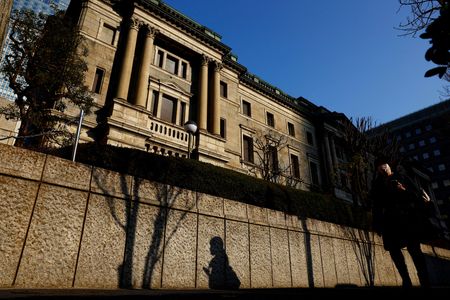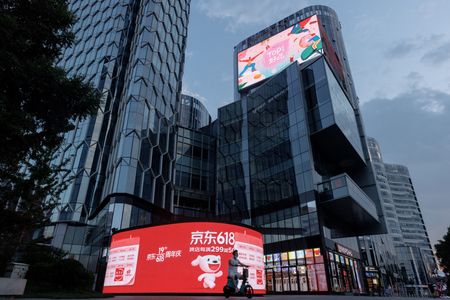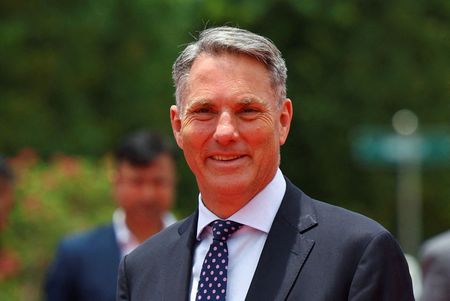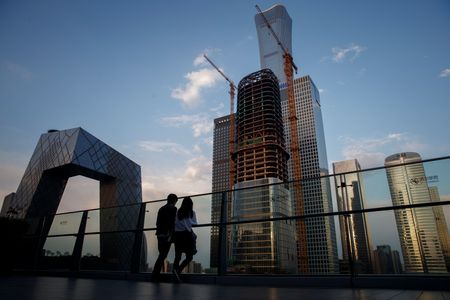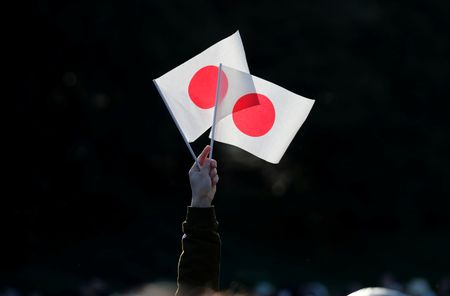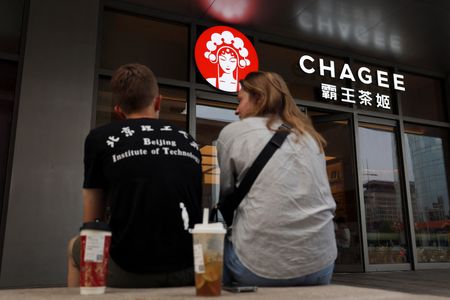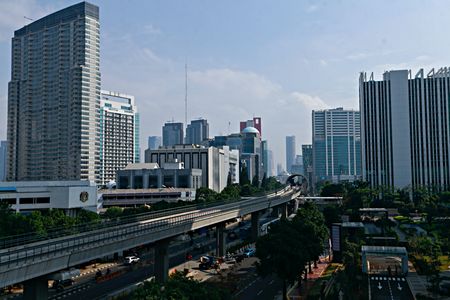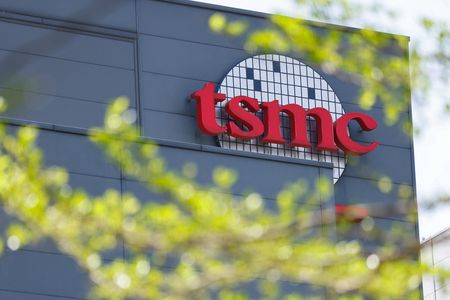By Leika Kihara
WASHINGTON (Reuters) -The Bank of Japan is likely to push back the timing of further interest rate hikes as uncertainty triggered by U.S. tariffs has heightened downside risks to growth and inflation, a senior International Monetary Fund official said on Wednesday.
The huge uncertainty surrounding U.S. tariffs and the response of other countries could dampen business sentiment and discourage some firms from sustaining wage hikes, said Nada Choueiri, deputy director of the IMF’s Asia Pacific Department.
The IMF still expects inflation will converge to the BOJ’s 2% target, though that will happen in 2027 rather than in 2026, as previously expected, said Choueiri, who is also the global lender’s mission chief for Japan.
“A lot of companies are likely now on the fence, not carrying out their investment plans and waiting for clarity on what’s going to happen. This is postponing investment decisions as well,” Choueiri told Reuters in an interview.
“We do see that if our reference scenario materializes, the BOJ interest rate increases will be pushed backwards in time,” she said. “Under a scenario where growth is dampened, the accommodation may need to be sustained for longer.”
Analysts polled by Reuters in April said they expected the BOJ would hold rates steady through June, with a 25-basis-point hike expected next quarter by a slight majority of respondents.
In its World Economic Outlook, the IMF said this week it expects Japan’s economy to expand 0.6% in 2025, down half a percentage point from January. It expects growth of 0.6% in 2026, down two-tenths of a percentage point from January.
“The balance of risks is on the downside for growth and for inflation,” as global uncertainty caused by higher U.S. tariffs could cool consumption and discourage firms from sustaining bumper pay hikes in next year’s wage talks, Choueiri said.
The BOJ, which ended a decade-long massive stimulus programme last year, raised its short-term interest rate to 0.5% in January in the belief the economy was on the cusp of sustainably achieving the central bank’s 2% inflation target. While Governor Kazuo Ueda has signalled the BOJ’s readiness to keep raising rates, U.S. President Donald Trump’s tariffs have complicated its decision on when and how far it can hike.
“If there is a big shock to domestic demand that threatens the chances of achieving sustainable 2% inflation, then countering that risk may require increasing the level of accommodation,” Choueiri said, when asked what it would take for the BOJ to contemplate cutting – rather than hiking – rates.
SAFE-HAVEN CURRENCY
Trump has hit Japan with 24% tariffs on its exports to the U.S. although, like most of his levies, they have been paused until early July. A 10% universal rate remains in place, as does a 25% duty on cars, which is expected to hit Japan’s economy.
With rising living costs and the potential hit from tariffs clouding the economic outlook, Japanese Prime Minister Shigeru Ishiba on Tuesday announced plans to cut gasoline prices and offer subsidies to curb electricity bills. Some lawmakers are also calling for the government to temporarily cut Japan’s sales tax to ease the pain on households.
Choueiri said the IMF was against such spending or tax cuts as they would heighten challenges for Japan in getting its fiscal house in order.
“If the economy is going to suffer a lot from the tariffs, there may be a need for some support. But the support will have to be time-bound and very well-targeted,” she said.
Japan must raise the sales tax rate at some point over the medium term to rein in its huge public debt, she said. “If there is a cut today, then the effort that will be needed later is going to be bigger, and it’s not going to be helpful,” she said.
Choueiri added that the yen, which has rebounded recently against the dollar, “remains a safe-haven currency given the strength of the economy, as well as the predictability and stability of the economy.”
“The authorities are committed to a flexible exchange-rate regime. It serves the country well. It helps absorb shocks,” she said. “We support their commitment to this regime, and it helps the economy to adjust.”
(Reporting by Leika Kihara; Editing by Paul Simao)

